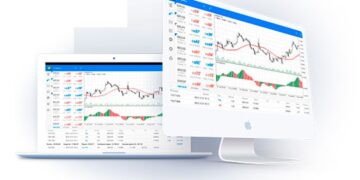There are a few trends that will shape the auto finance industry as we know in the coming years. Factors like the growing popularity of electric vehicles (EVs), increased demand for digital sales and purchase channels, connected cars and mobility, and the consumer’s shifting preference toward flexible consumption models –these driving forces will have a significant impact on the way traditional auto financing businesses have operated.
As these trends become mainstream, auto finance organizations must create the optimum model and IT landscape that helps them cater to the need for ever-evolving customer expectations. This entails building engaging digital models, across platforms of their choice, and creating a seamless transition between the brick-and-mortar dealership and online buying experiences.
Here are some ways to build the auto finance business of the future. Auto finance companies need to partner with technology providers and choose an auto finance software that delivers scalability, digital capabilities for enhanced customer journeys, and enable them to adapt and cater to new-age customer demands like pay-per-use and consumption-based usage patterns.
Creating a digital customer journey: In today’s market, consumers want tailored and customized products and services that cater to their specific needs, that they can access 24/7 across any platform or device that they choose. Multiple studies indicate that today’s customers expect a seamless, hassle-free online experience for their vehicle research, buying and financing needs. Buyers are becoming more willing to buy their next vehicle online and value “one-stop-shop” solutions that offer guidance and personalization.
Lessors who wants to gain a competitive edge and build for the future will need to make strategic investments in building a more omnichannel digital presence, platform modernization, and process automation. Lessors will need an intelligent auto lease software that can facilitate capabilities like online loan applications for customers, digitization of document submission, verification and management, e-contracts, e-signatures, and automation of workflows to eliminate manual paper-based underwriting or credit decisioning processes.
The increasing use of electric vehicles( EVs): The need for environmental sustainability is leading multiple countries and governments to push for the increased use of EVs. Automotive manufacturers are also investing heavily in technologies that will help consumers switch to EVs and hybrid models. As compared to their conservative internal combustible engine counterparts, EVs have a higher rate of depreciation and low resale value, which could lead more and more customers to lease EVs instead of buying them. Leasing will also allow the customers to switch their EV models more often since newer and better models will keep hitting the markets as the technology matures.
Servitization: Subscription-based usage, usage-based pricing, pay-per-use – call it what you may- the fact remains that the days of long-term fixed contracts seem to be coming to an end. Consumers today want the flexibility and transparency of usage-based pricing and on-demand services—without any long-term commitment, unlike leasing. These services also allow customers to change vehicles based on their requirements or pay varying amounts according to the type of car they use.
For auto lessors, it means building capabilities that enable them to monitor vehicle usage and other parameters that will determine the usage-based pricing. To provision for servitization, companies must have a system that can provide a 360-degree view of the asset throughout its entire lifecycle, from the time of origination to the end of the lease. The system will make it easier to constantly track usage of individual assets, build pricing models, determine contract terms and conditions, bill, and invoice customers, or assign certain fixed expenses to customers, such as tax, insurance, and asset depreciation.
Disruptive technology like AI, IoT, and blockchain: The emergence of technologies such as artificial intelligence (AI) and machine learning is encouraging businesses to use automation to handle more and more complex tasks, freeing up employees to innovate and add value to the business. Likewise, the internet of things (IoT) gives companies the ability to connect equipment, vehicles, and devices to the world wide web for better data sharing and analysis. This data, combined with powerful analytics, is being smartly utilized by digital disruptors to make better insight-driven decisions and to improve their customer experience.
Predictive analytics: Cars now have the potential to generate millions of data points every day, and these can be leveraged to improve usage and trend analysis. From using in-car data for better fleet management, and usage-related information to determine car health, to leveraging business operations insights to improve internal processes and productivity- the possibility of predictive analytics in auto leasing is enormous.
To design and operationalise processes and products that better leverage data, companies need auto leasing software that can grow with them.
About Odessa
The Odessa Platform is an end-to-end auto finance software, delivering comprehensive functionality that enables self-service, automation, and business agility. Odessa’s platform-philosophy means reduced cost and complexity associated with traditional upgrades and legacy providers – by delivering 4x annual platform releases, customers can easily adapt, go to market faster with new products, and remain nimble.
Headquartered in Philadelphia, USA, Odessa is the largest leasing-focused technology company in the world. With a highly specialized team of professionals across North America, Europe and Asia Pacific, Odessa has a 2-decade track record of excellence in providing industry-leading Auto Finance technology. Learn more at www.odessainc.com






![How to Setup & Install Microsoft 365 Setup [New Steps]](https://currentnewshub.com/wp-content/uploads/2022/07/how-to-setup-and-install-microsoft-365-setup-new-st-75x75.png)


